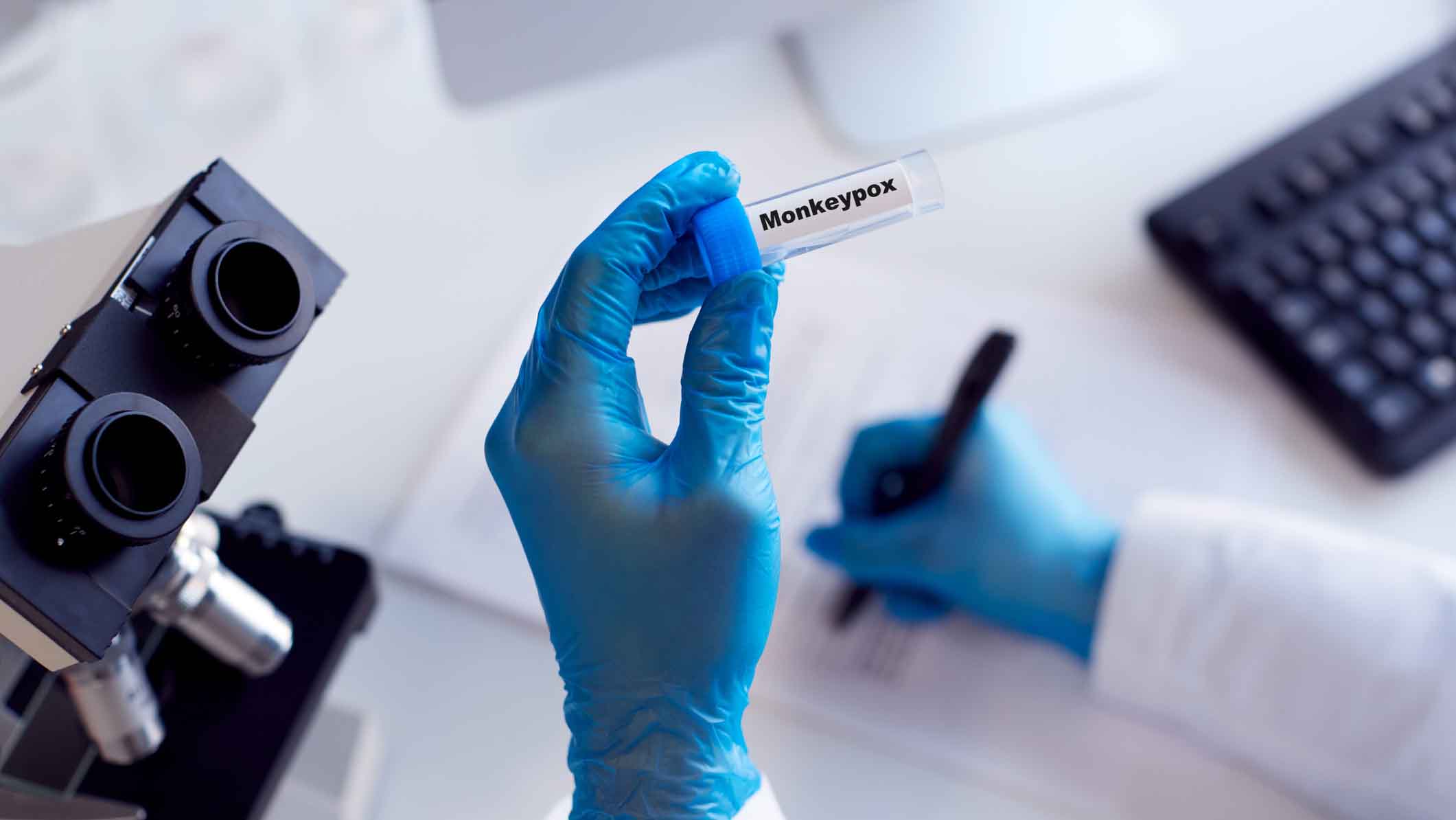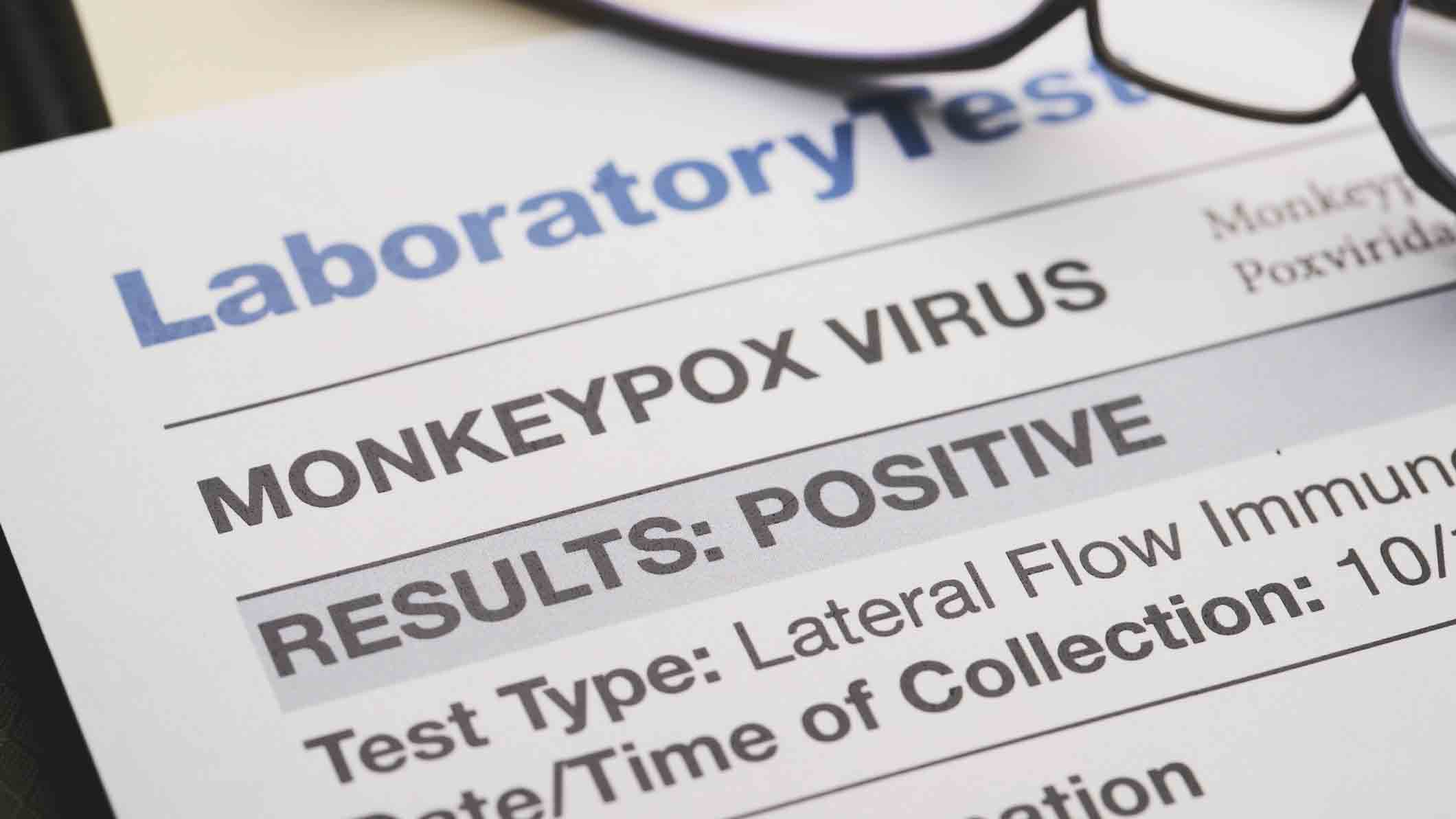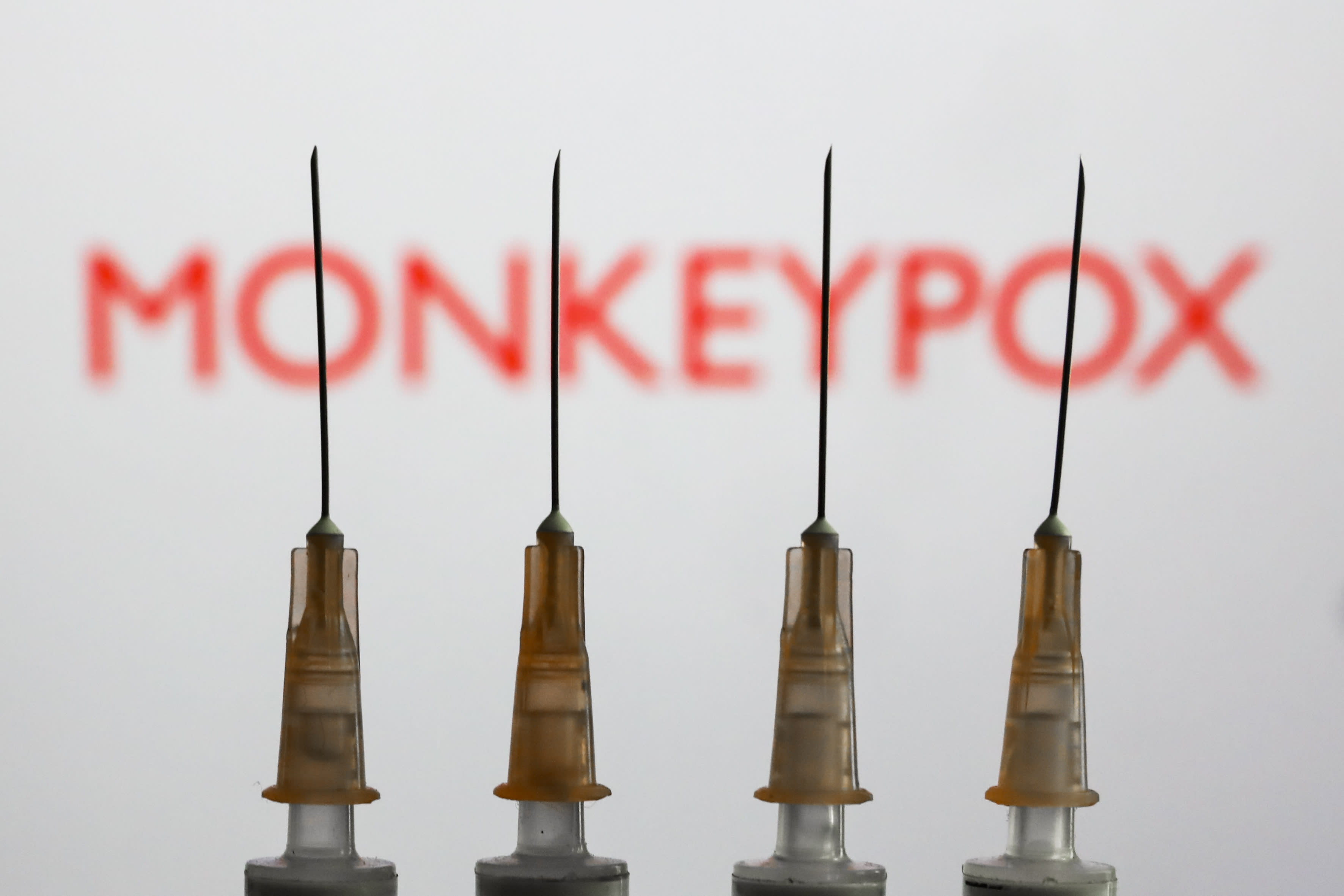Manhattan has come to lead the nation in the number of confirmed Monkeypox cases and residents are asked to make an appointment to get vaccinated against the illness. Erica Byfield reports.
What to Know
- The U.S. is in the midst of its largest-ever monkeypox virus disease outbreak, and New York City accounts for nearly a quarter of cases
- Monkeypox is most often spread through direct contact with a rash or sores of someone who has the virus. It can also spread through contact with clothing, bedding and other items used by a contagious person
- The JYNNEOS vaccine has been approved by the FDA for the prevention of monkeypox in people ages 18 and older; it is given as two doses, at least four weeks apart
New York City health officials are clarifying guidance on who should get vaccinated against monkeypox amid a largest-ever U.S. outbreak that shows no signs of slowing -- and that has seen the five boroughs drive nearly a quarter of cases nationwide.
The health department expounded Thursday upon its just-revealed Phase 1 strategy to deploy the coveted vaccine to the most at-risk New Yorkers. It comes a day after the city received a fresh batch of 6,000 monkeypox vaccine doses and pledged to open more appointments, which had been futile pending the arrival of more vials.
Watch NBC 4 free wherever you are
An "unfortunate glitch," though, made the appointments available prematurely, prompting a flood of confusion and a flurry of apologies from city health officials as they worked to correct the problem. Appointments made erroneously will be honored.
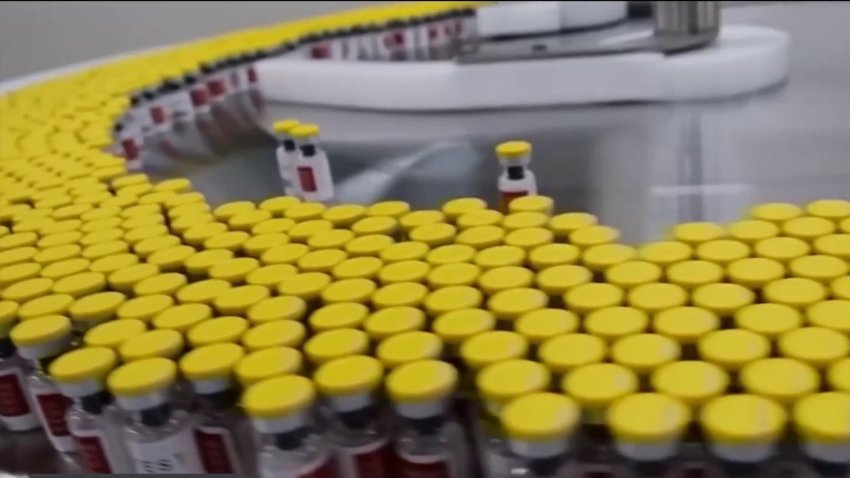
Get Tri-state area news delivered to your inbox with NBC New York's News Headlines newsletter.
All of the 2,500 appointments released on Wednesday were scooped up extremely quickly, within 10 minutes. No additional appointments are expected to open until early next week (the city doesn't want to offer any more shots until another shipment arrives) — and next week couldn't come sooner for a growing number of New Yorkers.
New York City health officials reported a total of 141 presumed monkeypox cases on Thursday, an 18% jump overnight. It's a 370% increase in the last two weeks -- and the five boroughs now account for almost a quarter of the 605 U.S. cases, the CDC says, making the city the epicenter of the outbreak in the U.S. There are 12 other cases elsewhere throughout the state as well.
Thursday's announcement also focused on raising awareness around the disease typically confined to the African continent and around testing, as New York City looks to make access to preventive care and treatment more widely available.
One vaccine clinic has already been opened at the Chelsea Sexual Health Clinic on Ninth Avenue in Manhattan, though no appointments have been available. That location, along with another at the Central Harlem Sexual Health Clinic (2238 Fifth Avenue in Manhattan), was open on Thursday for appointments only. A third site, located at the Corona Sexual Health Clinic, is expected to open later this month.
Federal, state, and local leaders gathered outside the Harlem health clinic to address how they are managing the crisis together.
"He has asked us, President Biden has, to have an aggressive response to this outbreak," said Special Assistant to the President Dr. Raj Panjabi.
JYNNEOS is the FDA-approved monkeypox vaccine, but the United States supply is limited right now, despite some reserves being released from the federal stockpile. Federal officials dispersed an additional 140,000 more doses on Thursady, bringing the number available to 210,000 nationwide, officials said, with millions more are on the way.
As of Thursday, New York has just over 8,000 total doses on hand — nearly three-quarters of of which are in NYC. Suffolk, Westchester, Nassau, Saratoga, Rockland and Sullivan counties also have doses.
At this point, eligibility in New York City is limited to "gay, bisexual or other men who have sex with men and transgender, gender non-conforming or gender non-binary persons ages 18 and older who have had multiple or anonymous sex partners in the last 14 days," under the guidelines released by the health department. Learn more here.
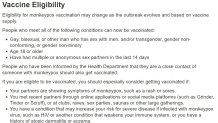
The next round of federally allocated monkeypox vaccine doses is expected later in July, city health officials said, and pledged more appointments would go online soon.
"Providing vaccine for New Yorkers at highest risk of transmission will ensure more New Yorkers are protected against monkeypox," NYC Health Commissioner Dr. Ashwin Vasan said in a statement. "The city will continue to work with the federal government to secure additional doses."
Vasan also admitted that the city' vaccine roll out so far has not been optimal, saying "we apologize to New Yorkers and we pledge to do better on this issue."
While monkeypox is contagious and rare in the United States, health officials say the risk to the general public is quite low. And this isn't COVID all over again.
As opposed to the early days of the COVID pandemic, when there was no effective treatment, there are already multiple vaccines that work against the orthopoxvirus that causes monkeypox. It's just a matter, again, of ensuring sufficient supply.
That said, there is new evidence the virus may be circulating among people who don't have symptoms, potentially suggesting infections are more widespread than understood.
Health officials have said monkeypox is painful, and the isolation period for those who have it can last weeks.
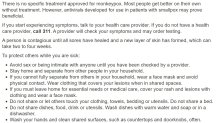
How Do You Catch Monkeypox?
The CDC issued new monkeypox guidance as the number of suspected cases nationwide boomed, marking America's largest-ever outbreak of monkeypox, which typically has been confined to other continents.
While the CDC says the risk to the general public remains low, people are urged to avoid close contact with those who are sick, including those with skin or genital lesions, as well as sick or dead animals. Anyone displaying symptoms, like unexplained skin rash or lesions, should reach out to their healthcare providers for guidance.
It is also advised to avoid eating meat that comes from wild game or using products (such as creams, powders or lotions) that come from wild animals from Africa.
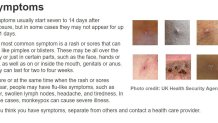
What Is Monkeypox?
Monkeypox was first discovered in 1958, when outbreaks occurred in colonies of monkeys kept for research -- resulting in its name. (What you need to know about monkeypox.)
The first case in a human was reported in 1970 in the Democratic Republic of the Congo, which still has the majority of infections. Other African countries where it has been found: Cameroon, Central African Republic, Cote d’Ivoire, Democratic Republic of the Congo, Gabon, Liberia, Nigeria, Republic of the Congo and Sierra Leone.
Human symptoms of monkeypox are similar to but milder than the symptoms of smallpox, the CDC says. It presents itself as a flu-like illness accompanied by lymph-node swelling and rash on the face and body.
Monkeypox starts off with fever, headache, muscle aches, and exhaustion. Monkeypox also causes lymph nodes to swell, something that smallpox does not. The incubation period is usually 7−14 days but can range from 5−21 days.
The CDC is urging healthcare providers in the U.S. to be alert for patients who have rashes consistent with monkeypox, regardless of whether they have traveled or have specific risks for monkeypox. See more information from the travel notice here.

